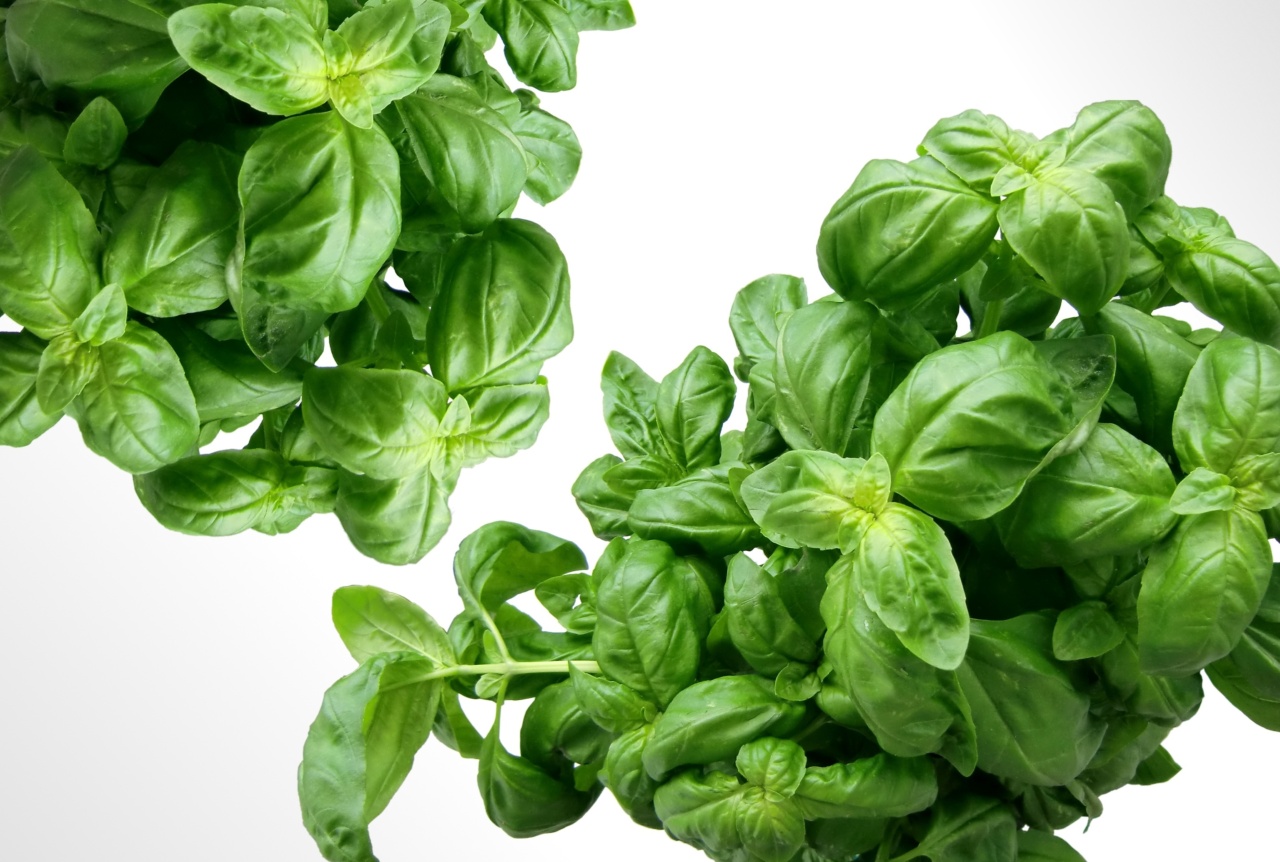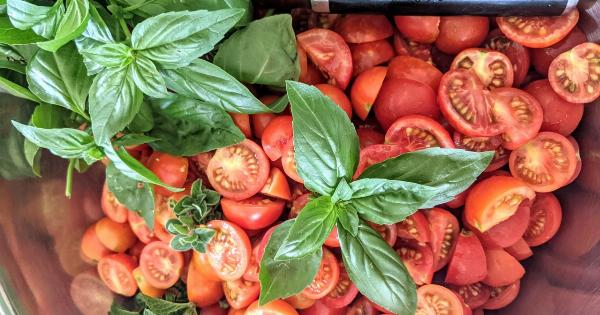Basil seeds, also known as sabja seeds or tukmaria, have been used for centuries in traditional medicine practices across Asia.
These tiny black seeds are derived from the holy basil plant, scientifically known as Ocimum basilicum, and offer a multitude of health benefits. In recent years, they have gained popularity in the health and wellness community due to their nutritional composition and potential medicinal properties.
This article explores the power of basil seeds and unravels the ways they can enhance your health.
Nutritional Profile of Basil Seeds
Basil seeds are a nutritional powerhouse, packed with essential nutrients that can support your overall well-being. Here’s a breakdown of their impressive nutritional profile:.
Rich in Fiber
Fiber is a crucial component of a healthy diet, aiding in digestion, promoting bowel regularity, and preventing constipation. Basil seeds are an excellent source of dietary fiber, containing around 7 grams of fiber per tablespoon.
Including basil seeds in your diet can help meet your daily fiber requirements and support a healthy digestive system.
Loaded with Antioxidants
Antioxidants play a vital role in protecting your body against free radicals, harmful molecules that can damage cells and contribute to chronic diseases.
Basil seeds are rich in antioxidants like flavonoids and phenolic compounds, which help neutralize free radicals and reduce oxidative stress. Regular consumption of basil seeds may aid in the prevention of various diseases, including cancer and heart disease.
Source of Plant-Based Omega-3 Fatty Acids
Omega-3 fatty acids are essential fats that your body needs for optimal functioning. While fish and other seafood are commonly associated with omega-3 fatty acids, basil seeds offer a plant-based alternative.
These seeds contain alpha-linolenic acid (ALA), a type of omega-3 fatty acid that can help reduce inflammation, support brain health, and improve heart health.
Promotes Hydration and Weight Loss
When soaked in water, basil seeds swell up and form a gel-like layer around them. This gel-like substance helps to keep your body hydrated and can be a great addition to your weight loss journey.
By consuming basil seeds, you can experience a feeling of fullness and reduce unnecessary snacking, leading to weight management.
Supports Blood Sugar Control
Basil seeds have shown potential in managing blood sugar levels, making them beneficial for individuals with diabetes or prediabetes. The fiber content in basil seeds slows down the absorption of carbohydrates and prevents sudden spikes in blood sugar.
Including basil seeds as part of a balanced diet may contribute to better glycemic control.
Boosts Digestive Health
The fiber in basil seeds aids in regulating bowel movements and promoting a healthy digestive system. It can alleviate common digestive issues such as bloating, constipation, and indigestion.
Regular consumption of basil seeds can help keep your gastrointestinal tract healthy and functioning optimally.
Enhances Skin and Hair Health
Basil seeds are a source of essential nutrients that can contribute to healthy skin and hair. The antioxidants in these seeds protect the skin against damage from free radicals, reducing signs of aging and promoting a youthful appearance.
Additionally, the omega-3 fatty acids in basil seeds nourish the scalp and hair follicles, promoting healthy hair growth.
Relieves Stress and Anxiety
One of the key benefits of basil seeds is their ability to promote relaxation and reduce stress levels. The seeds contain adaptogens, which help the body adapt to stressors and maintain balance.
Consuming basil seeds or adding them to stress-relieving drinks can provide a calming effect, aiding in the relief of anxiety and promoting better mental well-being.
Improves Respiratory Health
In traditional medicine, basil seeds have been used to alleviate respiratory issues such as coughs, colds, and asthma.
The natural properties of basil seeds, including their expectorant and antitussive effects, can help soothe respiratory passages and relieve congestion. Including basil seeds in your diet may support respiratory health and promote easier breathing.
Incorporating Basil Seeds into Your Diet
Now that you’re aware of the remarkable health benefits basil seeds offer, it’s time to incorporate them into your diet. Here are a few creative ways to include basil seeds:.
Refreshing Basil Seed Drink
Mix 1 tablespoon of basil seeds with a glass of water or juice. Allow the seeds to soak for about 15 minutes until they become gelatinous. Add a squeeze of lemon and a natural sweetener like honey, if desired.
Enjoy this refreshing drink as a natural thirst quencher.
Basil Seed Pudding
Create a healthier version of pudding by combining chia seeds, basil seeds, almond milk, and your favorite fruits. Let the mixture sit overnight in the refrigerator, and wake up to a wholesome and delicious pudding packed with nutrients.
Basil Seed Salad Dressing
Add soaked basil seeds to your favorite salad dressing to enhance its nutritional value. These seeds blend seamlessly with dressings and provide an extra crunch and texture to your salads.
Basil Seed Topping
Sprinkle basil seeds on top of yogurt, smoothie bowls, or oatmeal to give your breakfast a nutritional boost. The combination of basil seeds and these breakfast staples adds a unique flavor profile and increases the overall nutritional content.
Conclusion
Basil seeds offer a myriad of health benefits, ranging from improved digestion and weight management to enhanced skin and hair health.
Incorporating these tiny, black seeds into your diet can unlock their wellness potential and support your overall well-being. Experiment with different recipes and enjoy the goodness provided by basil seeds as you embark on your journey towards a healthier lifestyle.





























